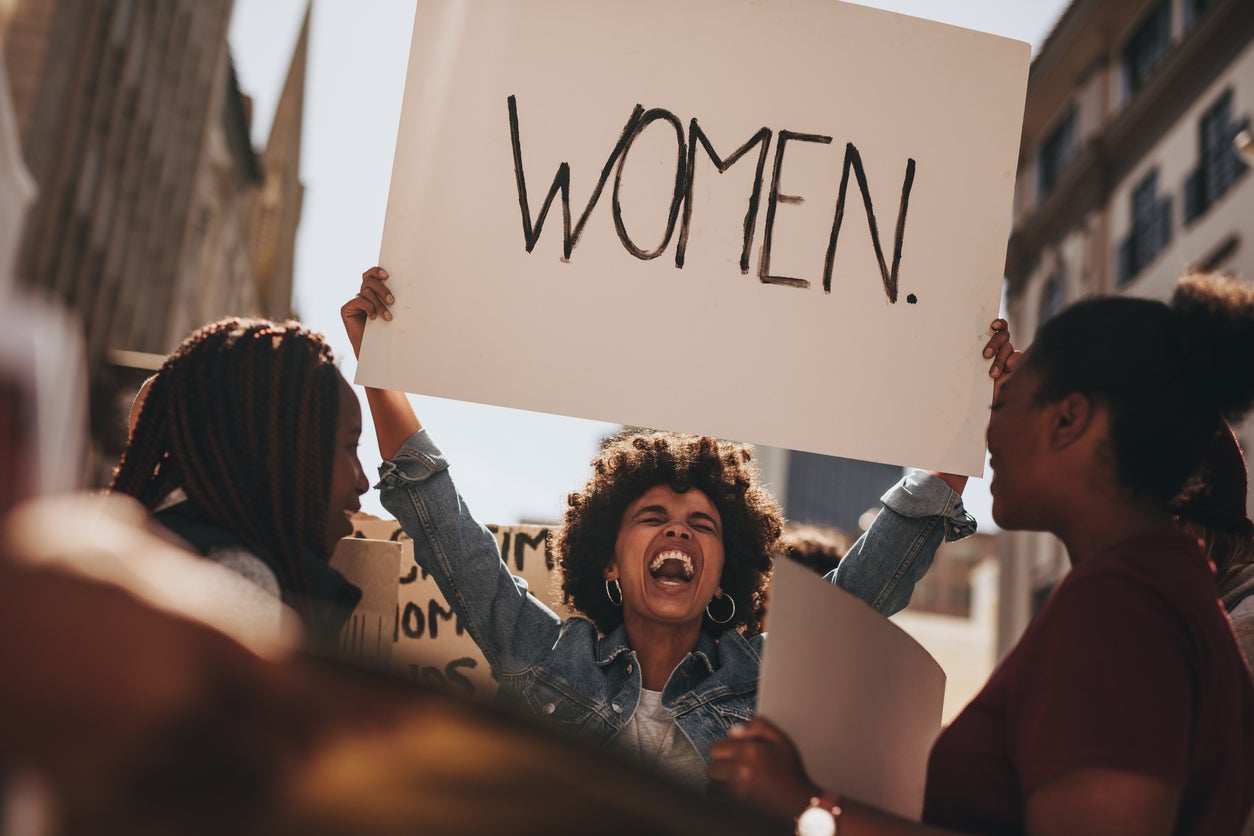Black women least likely to be ‘among top earners in Britain’
‘One of the most striking things for me about working in the financial sector for many years is that it draws on a very narrow talent pool of people from very similar backgrounds,’ says LSE director

Your support helps us to tell the story
From reproductive rights to climate change to Big Tech, The Independent is on the ground when the story is developing. Whether it's investigating the financials of Elon Musk's pro-Trump PAC or producing our latest documentary, 'The A Word', which shines a light on the American women fighting for reproductive rights, we know how important it is to parse out the facts from the messaging.
At such a critical moment in US history, we need reporters on the ground. Your donation allows us to keep sending journalists to speak to both sides of the story.
The Independent is trusted by Americans across the entire political spectrum. And unlike many other quality news outlets, we choose not to lock Americans out of our reporting and analysis with paywalls. We believe quality journalism should be available to everyone, paid for by those who can afford it.
Your support makes all the difference.Black women are the least likely section of society to be among the top earners in Britain, a new study has found.
The report, carried out by the London School of Economics, discovered 1.3 per cent of UK-born white men are in the top one per cent of wage earners while less than 0.1 per cent of black women born in Britain are in the top echelons.
Researchers, who analysed pay over the past 17 years, found 0.2 per cent of UK-born white women are in the top one per cent of earners.
Grace Lordan, associate professor of Behavioural Science, said: “It is striking that men are consistently the top earners, regardless of race. This is true both if we consider UK born workers, or those that move to the UK from other countries.
“What is even more striking is that black women – regardless of whether they are from the UK or elsewhere – have the lowest probabilities of being top earners.
“A critic of our work will point to more women working part-time or choosing to stay at home with children. However, we draw the same conclusions if we document statistics related to full time, full year workers only.”
She noted the dominant explanation given for the differences in money earned by men and women is the latter being more likely to have their work interrupted due to children, but this “explanation does not carry much weight” given researchers are “comparing within groups of women”.
Researchers, who utilised statistics from the Quarterly Labour Forces Survey from January 2003 to September 2020, looked at not just the top one per cent of earners but also the top 10 per cent and 20 per cent.
The study also examined how black women compared to white women at various points in their career trajectory - finding 10 to 15 years into working earning differences increase. Black women were found to be 6.1 percentage points less likely than white women to be in the top ten per cent of income.
Researchers sought to work out if discrepancies could be explained by black women taking up careers with a dearth of chances to progress, or having greater childcare responsibilities than other women, working less hours or having less educational qualifications.
But despite “controlling for age, education, marital status, hours and occupation”, they nevertheless discovered substantial differences for black women.
Denise Wilson, chief executive of the Hampton-Alexander Review, which analyses the number of women on FTSE boards, said the research demonstrates why we need to keep tabs on gender pay gaps by both ethnicity and race.
“As we face the significant challenge of developing the UK economy in the wake of the Covid-19 pandemic and a world rapidly disrupted by technology, success depends on fostering and utilising all of our talent,” she added.
“We should focus on leveraging the talent of all women in the UK as they are, without a doubt, grossly under-represented. We should focus specifically on black women as the group that is right now most left behind for reasons that have nothing to do with their ability.”
Dame Minouche Shafik, LSE’s director, said the research demonstrates the “pressing need to give more voice and opportunities” to black women.
She added: “One of the most striking things for me about working in the financial sector for many years is that it draws on a very narrow talent pool of people from very similar backgrounds. This reduces innovation and risks groupthink.
An earlier study by leading gender equality charity Fawcett Society found men dominate every sector of public life and equality for women remains “generations away” because progress on gender equality is “dismally slow”.
The study warned the under-representation of women in politics, the law, trade unions, the civil service, charities, professional institutions, and sports bodies is “consistent and persistent” - finding gender equality was “alarmingly” worse for women of colour who are totally absent from senior positions in many sectors.
Dr Zubaida Haque, deputy director of the Runnymede Trust, a prominent race equality organisation, previously said: “It’s astonishing to think that there has been a significant and growing black and ethnic minority population in this country (now one in six people) since the arrival of Empire Windrush in 1948 and yet we have never had a non-white Supreme Court judge, or a civil service permanent secretary or a CEO of FTSE 100 companies who is a woman of colour.”
Research has found black and minority ethnic female MPs are subjected to far more abuse online than their white peers – with a previous study by Amnesty International discovering black female MPs and journalists were 84 per cent more likely to be mentioned in abusive tweets than white women.


Join our commenting forum
Join thought-provoking conversations, follow other Independent readers and see their replies
Comments